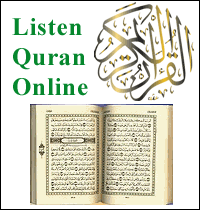1. Our Knowledge: Wasted by not taking action with it ..... more
2. Our Actions: Wasted by committing them without sincerity.
3. Our Wealth: Wasted by using on things that will not bring us ajr (reward from Allah). We waste our money, our status, our authority, on things which have no benefit in this life or in akhirah (hereafter).
4. Our Hearts: Wasted because they are empty from the love of Allah, and the feeling of longing to go to Him, and a feeling of peace and contentment. In it's place, our hearts are filled with something or someone else.
5. Our Bodies: Wasted because we don't use them in ibadah (worship) and service of Allah.
6. Our Love: Our emotional love is misdirected, not towards Allah, but towards something/someone else.
7. Our Time: Wasted, not used properly, to compensate for that which has passed, by doing what is righteous to make up for past deeds.
8. Our Intellect: Wasted on things that are not beneficial, that are detrimental to society and the individual, not in contemplation or reflection.
9. Our Service: Wasted in service of someone who will not bring us closer to Allah, or benefit in dunyaa.
10. Our Dhikr (Remembrence of Allah): Wasted, because it does not effect us or our hearts.
Sirajunisha Gulam thasthageer
January 28, 2010
This subject is for women only!
Another view of marriage.
If you had a husband whose responsibility it was to pay for all your costs, provide you with suitable housing, pay for all your children's expenses, provide you with social recreation as well as treat you kindly, patiently and with justice, would you cooperate with him?
Would you try to make him happy, respect him and forgive him for any wrongs he might do?
Along with that, you would have the right to earn and keep your own money and he wouldn't have the right to tell you how to spend it. You could be a millionaire but he would still have the responsibility to pay for all your needs. Doesn't that sound great?
It happens.
Sirajunisha Gulam thasthageer
7 Conditions For a Woman's Dress
A Hijab is a word that indicated the following conditions :
1. Clothing must cover the entire body, only the hands and face may remain visible (According to some Fiqh Schools) .
2. The material must not be so thin that one can see through it.
3. The clothing must hang loose so that the shape / form of the body is not apparent.
4. The female clothing must not resemble the man's clothing.
5. The design of the clothing must not resemble the clothing of the non believing women.
6. The design must not consist of bold designs which attract attention.
7. Clothing should not be worn for the sole purpose of gaining reputation or increasing one's status in society.
The reason for this strictness is so that the woman is protected from the lustful gaze of men. She should not attract attention to herself in any way. It is permissible for a man to catch the eye of a woman , however it is haram (unlawful) for a man to look twice as this encourages lustful thoughts.
Islam protects the woman, it is for this reason that Allah gave these laws. In today's society womankind is being exploited, female sexuality is being openly used in advertising, mainly to attract the desires of men and therefore sell the product. Is the woman really free in today's society ? The answer is obviously no, the constant bombardment by the media as to how the ideal woman should look and dress testifies to this.
Islam liberated woman over 1400 years ago. Is it better to dress according to man or God ?
Allah has stated in the Quran that women must guard their modesty.
" Say to the believing women that they should lower their gaze and guard their modesty ; that they should not display their beauty and ornaments except what must ordinarily appear thereof. " [Quran : 24.31]
" Say to the believing man that they should lower their gaze and guard their modesty ; that will make for greater purity for them, and God is well aquatinted with all they do. " [Quran : 24.30]
" And O ye believers turn ye all together toward God, so that ye may attain bliss. " [Quran : 24.31]
Author : Naseer Ahmad
Sirajunisha Gulam Thasthageer
Subscribe to:
Posts (Atom)

